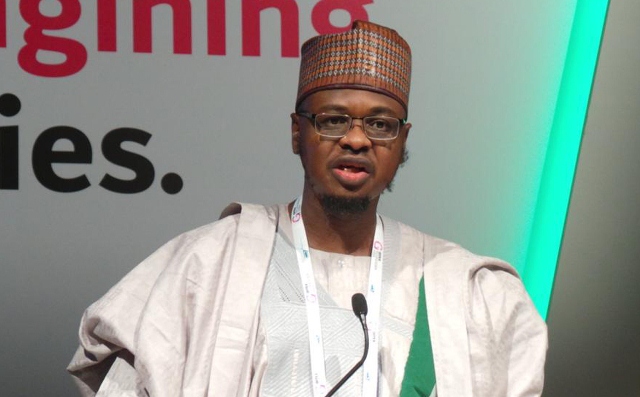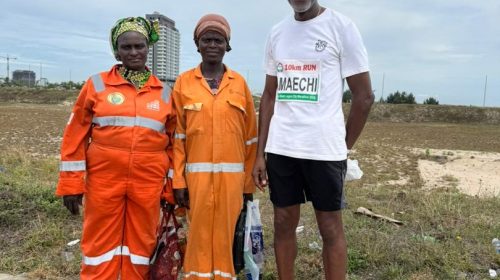Nigeria’s ICT Industry Growing in Leaps and Bounds – Pantami

…As active mobile lines cross 200 million mark.
…Broadband penetration hits 42.79%.
By Ngozi Onyeakusi—The Honourable Minister of Communications and Digital Economy, Prof. Isa Ali Ibrahim Pantami, has told the global digital community that Nigeria has been witnessing phenomenal growth in its Information and Communication Technology (ICT) industry, thus enabling socio-economic development in Nigeria and across the African continent.
Pantami stated this at a tea break hosted by Nigeria on the sideline of the 2022 International Telecommunication Union’s World Telecommunications Development Conference (ITU-WTDC) which started in Kigali Rwanda on Wednesday, June 8, 2022. The tea break was attended by senior officials of the ITU, including the Secretary General, Houlin Zhao, as well as representatives and heads of delegations from different countries attending the annual conference.
Addressing delegates on behalf of the Minister, the Executive Commissioner, Technical Services at the Nigerian Communications Commission (NCC), Ubale Maska, said that Nigeria had continued to record impressive growth in its ICT sector and acknowledged the support of the ITU in Nigeria’s strides in ICT.
“Nigeria has utilized ICT as a driver of socio-economic development not just for herself, but also for the benefit of the sub-region and continent, given its role as a founding member and strategic sponsor of the West Africa Telecommunications Regulators Assembly (WATRA),” Maska said.
Providing latest growth statistics in terms of the telecoms segment of the Nigerian ICT industry, Maska said in the last 20 years, Nigeria has achieved robust growth in its telecoms industry where it went from less than half a million connected telephone lines to over 200 million active mobile lines as at April, 2022. Importantly, the broadband penetration in Nigeria is now 42.79 per cent.
“As a country, we have grown from Second Generation (2G), to 3G, 4G and now the 5G is about to come on board after conducting a globally-acclaimed transparent auction and awards of two 5G licences. Also, the country has implemented vigorous financial inclusion initiatives riding on robust digital infrastructure,” he said.
Engr. Maska said many achievements of Nigeria in the area of ICT development have been possible through the successful launch and implementation of policies that foster use of ICTs across all sectors to enhance a digital economy.
Meanwhile, as a long-standing member of ITU Council, Maska said Nigeria has been playing remarkable roles in ITU, such as its chairing the World Summit on the Information Society (WSIS) 2022; chairing the World Radiocommunications Conference (WRC) 2015; and chairing of ITU Council Standing Committee on Administration and Management (SC-ADM) in 2019 and 2022.
He said Nigeria has also chaired the Ad-hoc Committee on ITU Regional Presence; served as chair and vice chair of several study groups; and provided financial support to the ITU headquarters. Maska assured the participants that Nigeria hopes to have the privilege and honour to continue to serve in the forthcoming ITU Council cycle (2022-2026). Maska commended the government of Rwanda for hosting this year’s edition of the conference on behalf of the African continent.
In his speech during the brief event, the ITU Scribe, Houlin Zhao, extolled Nigeria’s role and contributions as a member of ITU Council. He used the opportunity to seek the support of the other member countries for Nigeria’s membership in the next cycle, 2022-2026.
Maska, who participated as a panelist at the Partner2Connect Development Roundtable High Level Panel 8, warmly appreciated the ITU officials and delegates from other countries for honouring Nigeria’s invitation to the tea break to have important deliberations at the development conference.
Focused on “Connecting the unconnected to achieve sustainable development”, WTDC is a unique opportunity to develop innovative approaches and new models of collaboration for connectivity and digital solutions in this final ‘Decade of Action’ to achieve the Sustainable Development Goals (SDGs).







Leave a Reply